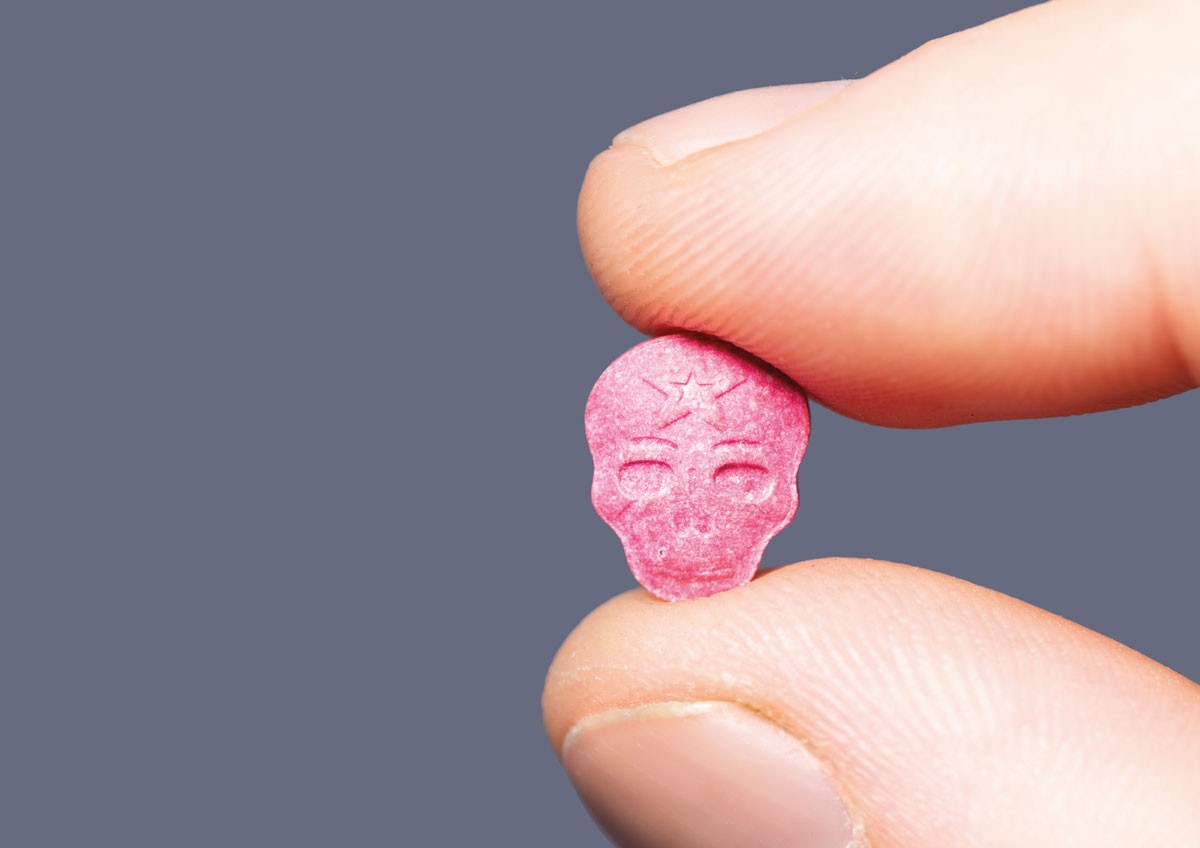 Pill-testing at music festivals is a hot political debate but there seems to be a mood for change among the medical profession.
Pill-testing at music festivals is a hot political debate but there seems to be a mood for change among the medical profession.
Jump to the updated information related to the New South Wales Coroner’s report.
Pill testing has been pushed to the fore of public debate with a series of deaths in the Eastern States earlier this year due to MDMA, or what the consumer thought was MDMA. It’s a contentious topic with opponents saying it is simply empowering illicit drug use and normalising harmful behaviour, while advocates say it is an evidence-based, harm minimisation strategy.
The ACT has been the first Australian jurisdiction to trial the service “in the interest of public health”. It has held two pill-testing trials and in both instances potentially harmful substances were identified and, in some of those cases, consumers were dissuaded from taking the drugs.
The relative success of the trials has encouraged pill testing advocates to push for a national policy so consumers can make informed choices as to the consumption of illicit substances, in particular MDMA.
The ACT Health Minister Meegan Fitzharris is pushing to form a policy, telling the Canberra Times the program was “harm minimisation at its core”. However, the move is not without opposition with shadow legal affairs spokesperson Jeremy Hanson telling the newspaper that “MDMA is harmful, it’s potentially lethal and what pill testing is doing is potentially encouraging people to take pills that have a very high quantity of MDMA.”
There’s the debate in a nutshell. Is pill testing harm minimisation or does it encourage consumers to partake in illegal activities? The answer is not quite so reductionist.
MDMA, or more specifically 3,4-methylenedioxymethamphetamine, is the base ingredient in the illicit drug Ecstasy. It was initially designed in 1912 to stop abnormal bleeding. In the late 1970s and early 1980s it was used in clinical psychiatry for the treatment of PTSD before being banned because clinical evidence as to its efficacy was sparse. At the same time there was an increase in its recreational usage.
The medical community is now circling back to determine MDMA’s usefulness in PTSD treatment with multiple clinical trials being undertaken in the US and Australia while its use continues to be a regular feature at music festivals and electronic music events.
However, the drug in clinical trials is not the same as that made by illicit manufacturers where there are no controls over purity or chemical composition with dealers known to be substituting MDMA with more dangerous substances that have a greater risk of causing harm, such as PMA (paramethoxyamphetamine) and PMMA (paramethoxymethamphetamine).
Is pill testing effective?
The ACT trials would point that way yet the bulk of evidence for pill testing is not based upon these local trials. Australia is behind the 20 countries across the Americas, Europe and Australasia which have been offering pill testing, some of them for nearly 20 years. Australia’s closest political allies in New Zealand, UK and the US have embraced harm minimisation policies around illicit drug usage.
These programs have produced a plethora of evidence to point to the effectiveness of pill testing to minimise harm to consumers.
Pill testing is not without its supporters in Australia, particularly among the medical profession. Both the RACGP and the AMA support pill testing policy, However, governments and politicians are resisting the call.
Medical Forum attempted to canvas a wide range of views to gauge the sentiment of the general public, the medical profession and academics who study illicit substance use.
While WA has not undergone a pill-testing trial such as in the ACT, researchers from Edith Cowan University have conducted a study in which they gleaned a deeper insight into the mentality of illicit drug consumers.
Researchers recruited participants at a prominent WA-based music festival and split them into two cohorts – people who had used MDMA previously and those who had not.
The lead researcher, Dr Ross Hollett, explained some of the findings.
Assessing the risks
“We were interested in assessing people’s risk inclinations and using their substance use history as a way of classifying those behaviours. What we found was people were pretty careful when the substance contained harmful contaminates. Both of the groups were going to reduce their risk, compared to any other potential risky behaviour. This was especially true for people who hadn’t used MDMA before.”
First-time users were found to be most inclined to utilise pill testing and to pay heed to the findings.
“Our study suggests if someone hasn’t taken MDMA before they probably just have to be presented with the pill test results and that is sufficient for them to reduce their risk, whereas those who have used MDMA before might need more encouragement with another strategy alongside to reduce their risk,” Dr Hollett said.
This further encouragement could come in the form of drug education and/or counselling that accompany pill testing facilities.
While Dr Hollett’s study was based on hypothetical scenarios, the findings were similar to those from the ACT trials, where harmful substances were identified and consumers opted to dispose of the drugs. Despite this, policy makers are yet to be convinced.
“I think the pill test itself is not really the objective if we are looking at this from a policy and political perspective because people who are opposed to pill testing are concerned about what message it sends,” he said.
“What we need to do is reframe the whole thing as a drug assistance program. The pill test is a means to invite people through the door and it is after that the most important part of the process happens; that’s when you engage with these substance users and talk about their likelihood to take risks and in the process educate them. This would have a deeper impact.”
One of the main criticisms of pill checking is the idea that by checking illicit substances, authorities are doing drug dealers’ jobs for them, which is why pill testing should be only one element of the interaction between testers and users.
“Anything that connotates a quality control program concerns some people. But if it was reframed as a drug assistance program, the bulk of it is about peer counselling and education. Pill testing is really a small part of it.”
With the debate about pill testing being played out in the media between political polarities, the consumers’ perspectives tend to be forgotten in this discourse.
We spoke to a number of patrons of Perth-based festival and electronic music events, some who have taken illicit drugs, on their views on pill testing.
One 23-year-old male said he thought pill testing was a good idea.
“I would probably make use of the pill testing. If they found the MDMA was harmful, I would probably ditch it. If pill testing became more accessible, I think that would hold the drug dealers more accountable to supply a cleaner product. If you are buying a safer product, the dealer will have to continue selling a safer product. It will keep them more accountable.”
A 30-year-old concert goer described the idea of pill testing at these events as “100% positive”.
“People are always going to take drugs at events. The best safety measure that can be taken is onsite testing.”
Another patron, a 38-year-old woman, said: “History has shown that people, with or without pill testing, will experiment with drugs at music festivals. It is inevitable, so why not make it safer. Experimenting with Ecstasy in the early 2000s at clubs and festivals, I wish I had been given better information about the drugs I was taking. I can’t believe 20 years on and it’s still being debated. It’s a no brainer.”
A 27-year-old man offered this perspective: “Pill testing should be a compulsory part of the harm minimisation strategy set up along with first aid etc. Some of the kids who died in Sydney, did so because they took all of their drugs as they walked in [to avoid police sniffer dogs and body searches]. Busting young people as they walk into events does not change anything and only means there will be more tragedies down the track.”
Dr Richard O’Regan, of Next Step Drug and Alcohol Services, sees pill testing a part of a more holistic solution.
“To put it into perspective in regards to pill testing as it has been raised in the media in the past six months or so, the message that keeps coming up is one of, ‘shall we do pill testing at music festivals, and will that keep people safe?’.”
“This may be part of the question but it is not the full question. The full question is, ‘how can we keep people safe at music festivals?’ and pill testing is part of keeping people safe. However, there are other things that need to happen at music festivals, for example, ready access to drinking water, safe places to calm down and take a break, and ready access to first aid.”
GPs can be placed in a difficult situation when dealing with patients who consume or intend to consume illicit drugs. Dr O’Regan has some simple advice.
“I don’t think a GP needs to be an expert in drugs to give brief advice. Being non-judgemental, empathetic and somewhat informed, and being able to convey safety messages for the person’s health and wellbeing are important,” Dr O’Regan said.
“Of course, there is an additional degree of difficulty when it comes to illicit substances. The message that all doctors should be giving about using illicit substances is that their safety is absolutely unknown, so there is no way a person can take it with absolute safety. ‘If you are going to do it, here are some things you can do to make it slightly less dangerous for you, or to reduce the harm you may experience’.”
“GPs give brief advice on everything and in terms of substance use, the simple messages are – it is best to try a small amount of the drug before you take the full dose; it is best to have somebody with you that is not using the drug.”
“In a binary system all you can say is, ‘look, don’t take drugs’. That is essentially a large part of the drugs message in Australia, ‘just don’t take drugs’. Now clearly with the tens of thousands of people who get charged with drug-related conditions in Australia, that’s just not working, so there is a need for sensible harm reduction advice. If we are not doing that, we are doing a disservice to people.”
“A conversation is better than a judgement. If you are talking to somebody and they are talking back to you, you’re ahead of the game.”
The WA Health and Police Ministers’ offices were contacted for comment on pill testing in Western Australia. No response was received before going to print.
Findings from the New South Wales Coronial Inquest – Updated 5th December 2019
Deputy State Coroner Harriet Grahame has released the findings from the Inquest into the deaths of six patrons of NSW music festivals between December 2017 and January 2019. The inquest heard evidence from medical professionals, festival patrons and organisers and a plethora of witnesses.
The six deceased young adults are Hoang Nathan Tran, Diana Nguyen, Joseph Pham, Callum Brosnan, Joshua Tam and Alexandra Ross-King.
Ms Grahame said there was ‘compelling evidence’ that pill testing and drug checking services should be trialled at NSW music festivals at a harm minimisation strategy.
‘I am in no doubt whatsoever that there is sufficient evidence to support a drug checking trial in NSW.
‘Drug checking is simply an evidence-based harm-reduction strategy that should be trialled as soon as possible, ’ Ms Grahame said.
The NSW Government has so far rejected the recommendation of pill testing and drug checking services.
In a statement of response to Ms Grahame’s recommendations, NSW Police Commissioner Mick Fuller said, ‘I’m gravely concerned about the message that pill testing sends to young people about the consumption of illegal substances.’
Mr Fuller said pill testing provides ‘false confidence’ to drug users about the safety of illicit drugs.
‘There is no such thing. All illegal substances carry the risk of harming or ultimately killing the user,’ Mr Fuller said.
Key recommendations:
- Pill testing/drug checking at NSW music festivals
- A permanent drug checking facility
- Development and application of advanced drug analysis at NSW music festivals
- Development of open sharing of drug trends and deaths information between agencies
- NSW drug summit to develop drug policy
- Removal of drug detection dogs at drug checking
- Restrictions on police strip searching, with further focus on illicit drug suppliers rather than users being targeted for searches
- An amnesty from law enforcement agencies for patrons utilising pill testing/drug checking services at NSW music festivals
- Specific training for law enforcement officers that are assigned to NSW music festivals
- Drug amnesty bins at music festivals
Findings can be downloaded here: http://www.coroners.justice.nsw.gov.au/Documents




